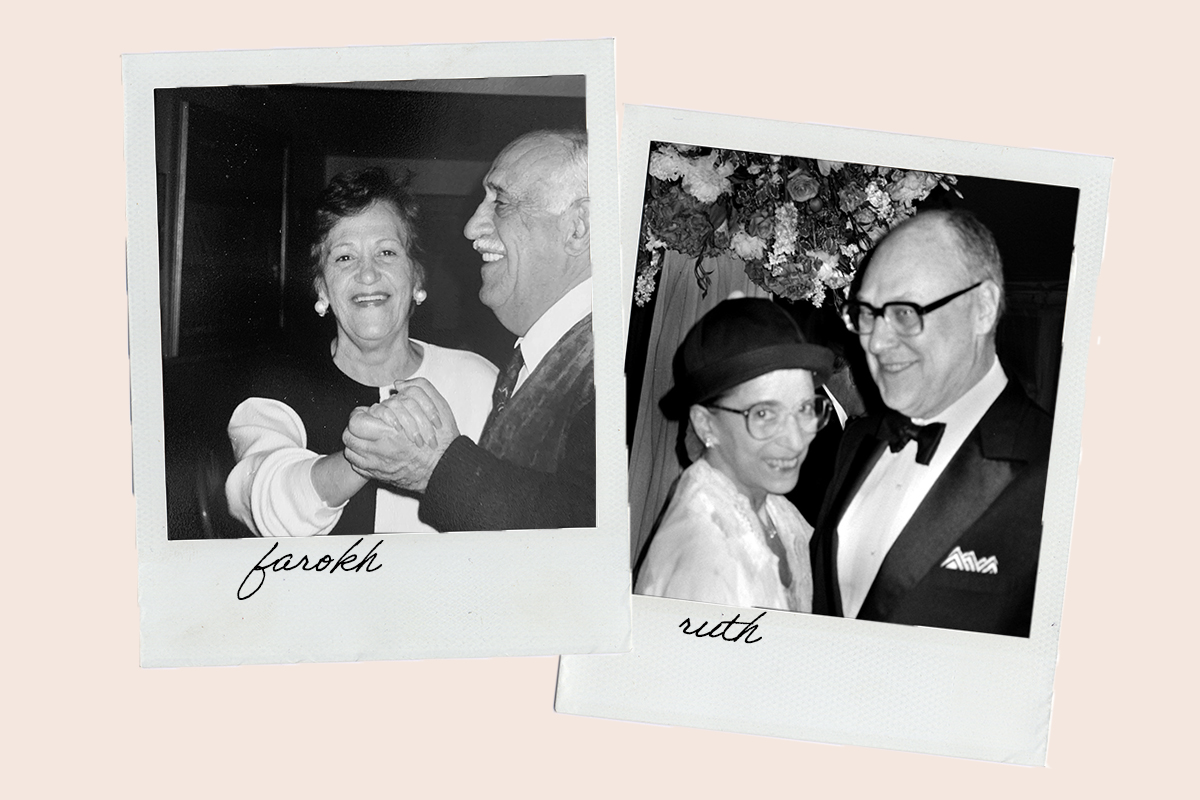Two Sundays ago, I lost my grandmother. Our family sat shiva (the seven-day Jewish mourning ritual) all week, and on Friday, we prepared for our first Rosh Hashanah without her.
Judaism dictates that celebrations of life must take precedence over death. Although still mourning her passing, I felt her presence in the sweet symbols of the New Year: apples, dates, and honey. Then, just as the sun was setting that evening, I heard the news that our nation lost its very own Jewish grandmother, Justice Ruth Bader Ginsburg. As we settled into our seats around the table and began to welcome 5781, I thought to myself, “This year literally cannot get any worse.”
Both events decidedly brought forth the inevitable. One generation comes to an end. However, Jewish tradition teaches us that all endings give rise to new beginnings — l’dor vador, from one generation to another. This idea of continuity reminds us that we have a responsibility to carry on the mission of tikkun olam, repairing the world, left to us by our ancestors.
My grandmother, Farokh, sacrificed so much for her family. In 1980, following the Iranian Revolution, she left behind her home forever to pursue a better life for her children. Without knowing any English, she gave up any personal goals she may have had in order to raise her family in this unfamiliar place. Her unwavering devotion is the reason why my cousins and I have all been fortunate to grow up in America, receive educations, and build lives for ourselves. Because of her, we could fulfill our dreams. She taught me how to love unconditionally and lead selflessly.
My cousin Jacqueline recently became a mother herself, making Farokh a great-grandmother for the first time just before she died. Although she was never able to meet baby Ace, her legacy lives on in him. We are all the fruits of her labor; we all now carry her warmth, unbounded compassion, and dedication as we continue on the path that she made possible.
Justice Ginsberg’s character lives on in all of us, too. In 1946, as a young teen living through the end of the Holocaust, she wrote, “No one can feel free from danger and destruction until the many torn threads of civilization are bound together again.” Even at that age, she felt the calls of tikkun olam. These calls followed her through the rest of her life, as she overcame seemingly insurmountable obstacles on her mission to heal this country. She said that early in her career, it was like she had three strikes against her: being Jewish, being a woman, and being a mother.
Justice Ginsburg, of course, is the force behind so many of the freedoms American women are granted today. She wasn’t just handed the torch of previous generations; she took it and ran. In a time when we, too, are feeling the weight of the world on our shoulders, her journey teaches us that even in the face of overwhelming challenges, we must remain steadfast in our pursuit of justice. She has given us the torch, and we must not allow her death to extinguish the flames.
On Rosh Hashanah, the ritual of shiva is annulled. At first, that felt unfair, like I was being robbed of the chance to properly mourn and honor the life of my grandmother in a year when so much has already been taken from us. But when we grieve, our sadness isn’t for those who have departed; it’s for ourselves who now must live without them. Tears are for the living.
I soon realized that even in their deaths, these Jewish women did not want us to sit anchored in our despair. They wanted us to fight. My grandmother’s final act of love to us was bringing her family together for the Days of Awe. Her strength will guide me as I take on the obligation RBG left to us: “to better the world carefully and steadily, to do one’s part to make our communities, nation, and universe more humane, fairer, more just.”
Both of them paved the way for generations to come; each of them suffering incredibly to hold on as long as they could. They’ve earned their eternal rest. It’s now on us to finish where they left off.
May their memories be for a revolution.
Header image design by Emily Burack. Image of Farokh courtesy author; of Ruth Bader Ginsburg by Annie Groer/The Washington Post via Getty Images. Polaroid frames via Getty Images.



